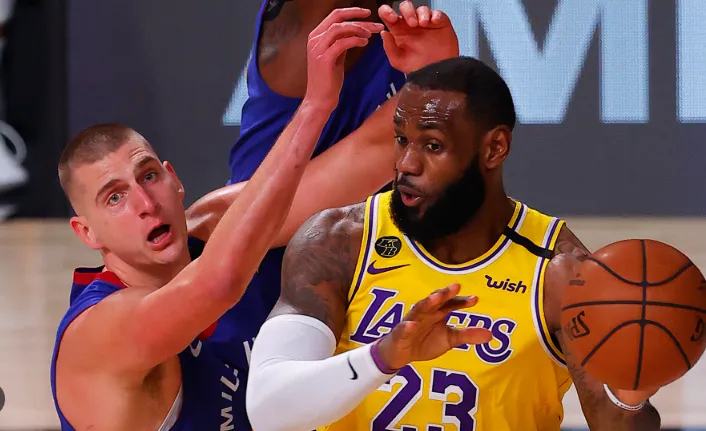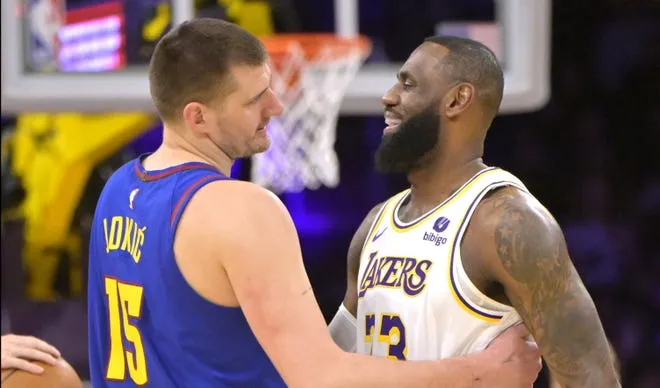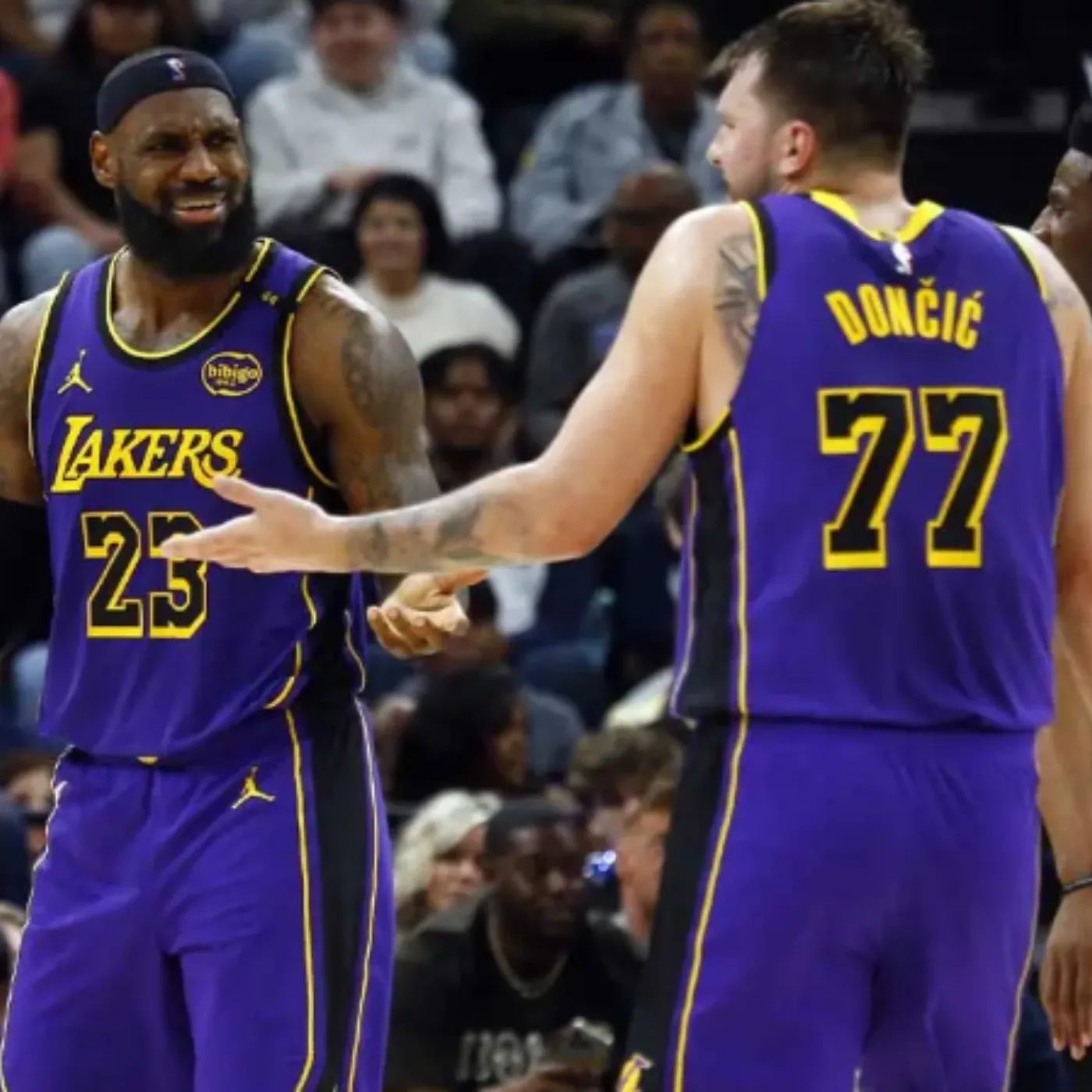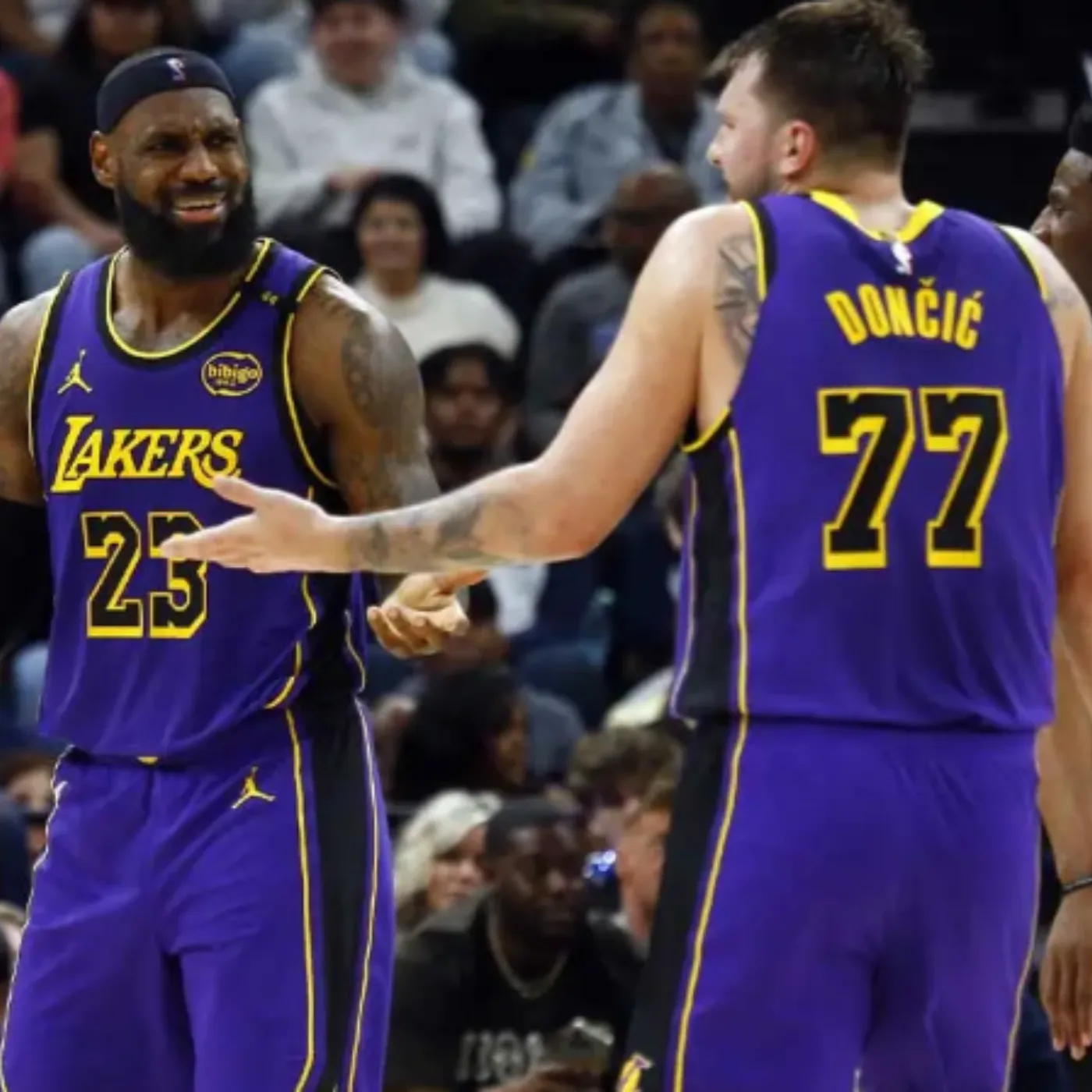

LeBron James praises Jokic highly – rival or… future teammate?
In the ever-evolving landscape of the NBA, LeBron James continues to be both a participant and an analyst of the sport’s biggest transformations. In a recent episode of his podcast “Mind The Game,” which he co-hosts with Hall of Famer Steve Nash, James opened up about the league’s current trend of building around elite playmakers—not just superstars. His comments on Nikola Jokic and Jalen Brunson in particular highlight a deeper understanding of how today’s NBA teams find success.
From facing Jokic in back-to-back playoff series, to witnessing Brunson’s rise as the New York Knicks’ offensive engine, LeBron’s honest assessment sheds light on the growing respect he has for these stars—and the shift in how franchises are built around them.
Let’s dive into LeBron’s remarks, the significance of Jokic and Brunson’s rise, and what this says about the future of NBA roster construction.
Jokic vs. LeBron: A Rivalry Rooted in Respect
The playoff duels between Nikola Jokic and LeBron James have become modern NBA classics. From the 2020 bubble, where the Lakers bested the Nuggets in the Western Conference Finals, to more recent battles where Jokic and Denver eliminated the Lakers in consecutive postseasons, the rivalry has been fierce.
Despite being on opposite ends of these outcomes, LeBron has never shied away from praising Jokic’s unique brilliance.
During their chat on “Mind The Game,” James reflected on what makes Nikola Jokic special:
“If you get a young Nikola Jokic… it takes time to see how they shape out, to now be able to say, ‘This is how we’re going to play.’”
What LeBron is alluding to here is the shift from teams building around raw talent or position-specific roles, to instead building around a player’s basketball IQ, vision, and style—something Jokic exemplifies more than anyone.
Jokic’s Playoff Excellence—Even in Defeat
Although the Nuggets were ousted in a tight seven-game series by the Oklahoma City Thunder in the 2025 Western Conference Semifinals, Jokic’s performance was nothing short of elite.
He averaged 28.4 points and 13.9 rebounds across the series and constantly kept Denver competitive in what was widely considered one of the most skillful series in recent years.
Shai Gilgeous-Alexander led OKC to victory, but Jokic’s ability to control the game, even when defenses targeted him, further proves his status as the league’s most complete offensive player.
And it’s that very completeness that LeBron admires.
LeBron James on Jalen Brunson: “The Knicks Built the Right Way”
The other name that LeBron James praised was Jalen Brunson, whose rise as the leader of the New York Knicks has turned heads across the league. LeBron highlighted Brunson’s multi-dimensional game and how the Knicks have structured their roster to accentuate his strengths.
“The New York Knicks have built around Jalen Brunson on what his style is—gritty guys, tough guys, long wing guys—and it’s allowed him to be special in what he does,” James explained.
He continued:
“Being able to score the ball, get to the free throw line… he’s a three-level scorer.”
Brunson’s evolution from being a secondary option in Dallas to the primary playmaker in New York mirrors the changing philosophies of NBA team-building. LeBron points out that success today hinges not just on having a star, but building an environment where that star can thrive stylistically.
What Makes Jokic and Brunson Unique in the Modern NBA
Both Nikola Jokic and Jalen Brunson are atypical superstars in that neither fits the mold of traditional athleticism-first stars. Instead, they dominate with their minds, court vision, timing, and scoring instincts.
-
Jokic, at 6’11″, isn’t a leaper or shot-blocker, but he controls the game with passing angles, footwork, and tempo. He’s the definition of positionless basketball in a center’s body.
-
Brunson is undersized for a traditional lead guard but has become one of the league’s most efficient scorers and clutch performers, averaging 27.3 points per game this season.
Their dominance has led to a key realization among front offices: Basketball IQ and adaptability matter more than ever.
The Age of the Playmaker: A Strategic Shift in the NBA
As LeBron James and Steve Nash discussed, modern NBA teams are moving away from building around one-dimensional stars—those who may excel in scoring or defending but can’t elevate teammates.
Instead, the new wave of success is driven by playmakers: players who make others better, see the floor in 4D, and force defenses to react every possession.
Examples beyond Jokic and Brunson include:
-
Luka Doncic in Los Angeles
-
Tyrese Haliburton in Indiana
-
Shai Gilgeous-Alexander in OKC
-
Anthony Edwards, evolving into a top-tier creator in Minnesota
These players not only rack up stats but change the way the game is played—and LeBron sees that as the new standard.
LeBron’s Perspective: A Self-Aware Transition
LeBron’s praise for these emerging stars is especially meaningful because it shows his own understanding of legacy and evolution.
While he was once the league’s ultimate do-everything star, James is now stepping back and admiring how the new generation is reshaping the game. His comments are less about nostalgia and more about respect for innovation.
It’s also a passing of the torch moment—LeBron acknowledging that Jokic and Brunson are among the ones carrying the NBA forward.
The Knicks and Nuggets: Teams Built with Intentionality
Another theme from LeBron’s discussion is the importance of team-building around a player’s strengths.
-
In Denver, the offense runs through Jokic, and everyone else plays off his touch passes, backdoor dimes, and tempo control.
-
In New York, Tom Thibodeau has empowered Brunson by surrounding him with defensive-minded wings and floor-spacing shooters, allowing him to attack freely and carry the scoring burden.
This kind of intentionality is a departure from previous eras where teams simply chased big names without cohesion. The Knicks and Nuggets have crafted rosters that mirror their stars’ identities, and it’s a major reason why they’ve been playoff fixtures in recent seasons.
The Bigger Picture: LeBron the Analyst and the Mentor
What makes LeBron’s commentary even more powerful is that he’s still playing—still contributing at a high level—yet openly celebrating younger stars.

It signals his dual role in today’s NBA:
-
As a competitor: Still hungry for a championship alongside Luka Doncic on the Lakers.
-
As a mentor: Aware that the league’s future is in the hands of players like Jokic and Brunson, and embracing that truth.
Rather than gatekeeping, LeBron is amplifying their success, which only adds credibility to his insights.
Conclusion: LeBron’s Praise Highlights the NBA’s New Golden Age of Playmakers
LeBron James calling out Nikola Jokic and Jalen Brunson as shining examples of today’s NBA playmaker era is more than just flattery. It’s a signal to fans, front offices, and future stars: The game is changing.
Teams are no longer winning by assembling star-studded lineups with little chemistry or cohesion. Instead, the formula now requires:
-
Elite playmakers with high basketball IQ
-
Strategic roster construction tailored to their style
-
Patience to develop chemistry over time
Jokic and Brunson represent this shift perfectly. They are thinking players, elevating teammates, and dictating pace—exactly the kind of stars that shape eras.
And if LeBron James—a man who has defined an era himself—is giving them props, you can be sure their impact is real.


















